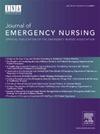An Analysis of Psychological Capital and Influencing Factors Among Disaster Care Reservists
IF 1.8
4区 医学
Q2 EMERGENCY MEDICINE
引用次数: 0
Abstract
Introduction
In recent years, with the frequent occurrence of public health emergencies, various infectious diseases and natural disasters (earthquakes, tsunamis, and fires have placed a burden on global public health and health care systems, especially on health care workers. This study aimed to investigate the current state of psychological capital among disaster care reservists and the factors influencing it.
Methods
Between January and February 2024, a total of 330 members of the disaster nursing reserve team from 4 tertiary general hospitals in Mianyang, China, were surveyed using an online platform named Wenjuanxing to obtain information on general demographics, psychological capital, and job burnout.
Results
The total score of psychological capital was 91.10 ± 16.15. Psychological capital was negatively correlated with emotional depletion dimension and depersonalization dimension scores (P < .01) and positively correlated with personal achievement dimension scores (P < .01). The results of multiple regression analysis revealed that the psychological capital of members in disaster nursing reserve teams was influenced by various factors such as their marital status, having children, work experience in the department, level of public recognition and respect, number of disaster relief trainings, participation in disaster relief activities, types of disaster relief activities, and level of job burnout (P < .05). This accounted for 48.9% of the total variation.
Discussion
The psychological capital of disaster nursing reserve team members is affected by several aspects, which warrant great attention. Relevant management departments should adopt appropriate strategies to effectively mobilize their self-efficacy, improve their professional identity and sense of achievement, and enhance their psychological capital level.
灾难护理后备人员的心理资本和影响因素分析。
导言:近年来,随着突发公共卫生事件的频繁发生,各种传染病和自然灾害(地震、海啸和火灾)给全球公共卫生和医疗保健系统,尤其是医护人员带来了沉重的负担。本研究旨在调查灾难护理预备人员的心理资本现状及其影响因素:方法:2024年1月至2月,利用 "文娟行 "网络平台对绵阳市4家三级综合医院的330名灾害护理预备队员进行了调查,以了解他们的一般人口统计学、心理资本和工作倦怠等方面的信息:心理资本总分为(91.10±16.15)分。心理资本与情绪耗竭维度和人格解体维度得分呈负相关(P < .01),与个人成就感维度得分呈正相关(P < .01)。多元回归分析结果显示,救灾护理预备队队员的心理资本受多种因素影响,如婚姻状况、有无子女、科室工作经历、公众认可和尊重程度、救灾培训次数、救灾活动参与度、救灾活动类型、工作倦怠程度等(P < .05)。这占总变异的 48.9%:救灾护理预备队员的心理资本受多个方面的影响,值得高度重视。相关管理部门应采取相应策略,有效调动其自我效能感,提高其职业认同感和成就感,提升其心理资本水平。
本文章由计算机程序翻译,如有差异,请以英文原文为准。
求助全文
约1分钟内获得全文
求助全文
来源期刊
CiteScore
3.10
自引率
11.80%
发文量
132
审稿时长
46 days
期刊介绍:
The Journal of Emergency Nursing, the official journal of the Emergency Nurses Association (ENA), is committed to the dissemination of high quality, peer-reviewed manuscripts relevant to all areas of emergency nursing practice across the lifespan. Journal content includes clinical topics, integrative or systematic literature reviews, research, and practice improvement initiatives that provide emergency nurses globally with implications for translation of new knowledge into practice.
The Journal also includes focused sections such as case studies, pharmacology/toxicology, injury prevention, trauma, triage, quality and safety, pediatrics and geriatrics.
The Journal aims to mirror the goal of ENA to promote: community, governance and leadership, knowledge, quality and safety, and advocacy.

 求助内容:
求助内容: 应助结果提醒方式:
应助结果提醒方式:


